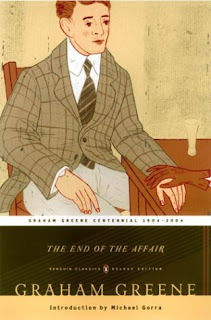
I was reading this at the gym while simultaneously working through
the Barzun book. They overlapped in interesting ways. I had never heard of the author until reading his
biography of Napoleon earlier this year - his stuff makes for good reading.
And this book gives some highly useful insights into all the blather and phoniness surrounding what our politicians would pass off as "patriotism" or "nationalism." Like identity politics, celebrating and emphasizing differences just doesn't make much sense.
In this book he examines a century of high-minded efforts (or at least involving high-flown rhetoric) to throw off kings, emperors, church leaders, whoever - often in the name of some would-be national group or the other.
He discusses the American Revolution at the outset - essentially a transition from one leadership structure to another without much disturbance of the society. But as we saw in the last presidential election, when words like "freedom" and "change" and the like start getting thrown around by skilled orators, folks around the world can fill in the blanks however they like - and find inspiration and justification to proceed.
Lots of details about revolutionaries in France, Italy, Poland; Russia; Belgium; etc. The French experience was the key - they marketed the ideals of the revolution all across Europe. Their huge armies picked up conscripts from all over, and traveled all over. This altered the outlook of some many folks so dramatically that all sorts of change happened.
The author discusses how a small group of revolutionaries would show up in disturbance after revolt after war all around Europe and South America. Only to typically find that the group of people ("nation") or whatever that they intended to lead to "freedom" wasn't even interested in the disturbance.
Metternich's "system" after Waterloo to preserve order. Russian "Decembrists" in 1825. Outbreaks in 1830 in various locales. Another round of outbreaks in 1848 - starting with high hopes, ending with minimal change. France increasingly conservative under Louis Philippe and Napoleon III. The "commune" following the defeat by Prussia.
Interesting to observe the scramble of the "nations" to discover - or more typically invent - their national heritage and customs. Then members of sub-groups intended to comprise so-called "nations" found out they had significant differences and aims - oops.
Scotland adopts the "kilt" in 18th century - named and sold by English. Germany reaching back to Tacitus, seeking martial honor in the deep forest tradition (rather than per the decadent French). Almost every group designated someone as its "Washington" or "Lafayette."
Famous artists showing up here and there - Wagner, Liszt, Stendhal, Hugo. Beethoven ("Eroica" for Napoleon).
How all things Greek became wildly popular around 1830 or so - Europeans rush to liberate Greeks from the Turks, only to find that the classical imagery (Achilles et al) didn't quite match the locals. Lord Byron. Now everyone needed to learn Greek in school.
Louis Kossuth in Hungary (very popular in US at time Kossuth County, Iowa was named).
Behaviors and symbols borrowed liberally from the religions it was fashionable to despise.
At the end of the book, the author notes the disillusionment of these high-minded revolutionaries, and states that this led to the cold-blooded approach of Lenin and his ilk - if the people didn't want regime change, they would be taught to want it (or else).
 I've seen numerous positive references to this book. Including comparisons to "All Quiet on the Western Front" (discussed here), but set in WWII.
I've seen numerous positive references to this book. Including comparisons to "All Quiet on the Western Front" (discussed here), but set in WWII.

































